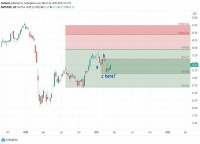|
Opalesque Industry Update - A research paper presented at Yale University reports that the financial world's incumbent classification system, GICS, is inherently flawed, as it omits material sustainability factors.
At the other end of the spectrum, the SICS classification system created by the Sustainability Accounting Standards Board (SASB) is faulty in that it overemphasizes sustainability metrics in comparison to traditional financial metrics. Richmond Global Compass Fund's Chief Investment Officer Decio Nascimento presented the paper entitled "Industry Classification and Environmental, Social and Governance (ESG) Standards" at Yale University's Initiative on Sustainable Finance Symposium 2018 on the State of ESG Disclosure Standards on November 2, 2018. Richmond Global Compass concluded that integrating the two systems by overlaying SICS industry groups over those of GICS creates a more accurate classification system, one that significantly decreases the correlations between different sectors. This result is impactful as it demonstrates that a reliance on either inferior system misrepresents certain risk factors within a manager's portfolio, and thus, could be a breach of fidicuary duty. Richmond Global Compass presented conclusive empirical data from its study. First, the GICS and SICS classification systems were tested individually. Of note, Richmond Global Compass demonstrated that GICS fared better than SICS in classifying firms of similar characteristics together. One explanation provided was that GICS is currently used to classify more than 95% of capital markets, reinforcing the feedback loop between the system and those managers deploying it. The firm then took the study a step further and integrated the two systems by merging the 11 GICS sectors with the 10 SICS sectors to create a new classification system with 110 potential sectors - some sectors were null sets so the actual number of sectors was between 30 and 40. Compass then tested this classification system in the same way it did GICS and SICS and the results were astounding: over various datasets, such as S&P500 small and large caps, S&P1500 small and large caps, and UK small and large caps, 95% of sectors saw improvements in their between-sector correlations. In other words, companies that were classified into different sectors proved to be less related to one another in terms of their stock price movements. Furthermore, within the 95% of sectors that saw improvement, the average magnitude of these improvements were 51%. Richmond Global Compass believes more work is to be done in this space, but the initial study's conclusions are promising. As Compass evolves its machine learning platform, the firm's knowledge on materiality will improve and an even stronger classification system can be developed that properly balances all financial and non-financial material metrics. A manager utilizing a more optimal classification system will have a better understanding of the risks contained in his or her portfolio, which will prove especially important in times of turmoil. It is the belief of Richmond Global Compass that the markets will inevitably adopt a refined classification system that will drive the markets and world in a more sustinabile direction. |
Industry Updates
Flawed world financial metrics reported in paper presented at Yale University by Richmond Global Compass Fund
Tuesday, November 06, 2018
|
|





 RSS
RSS







